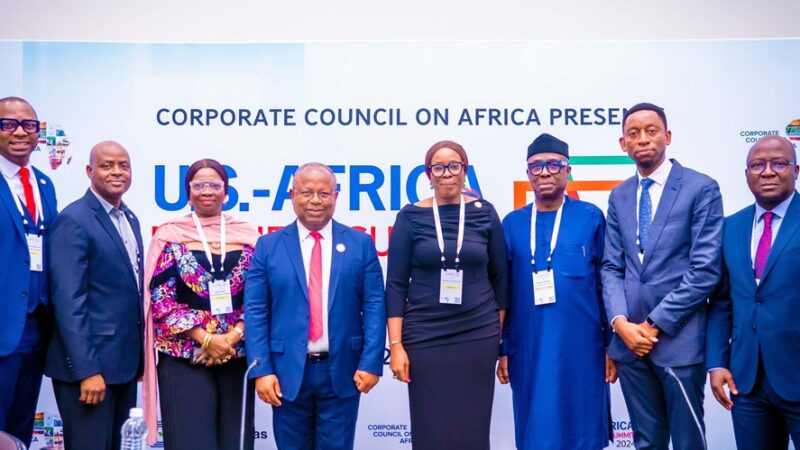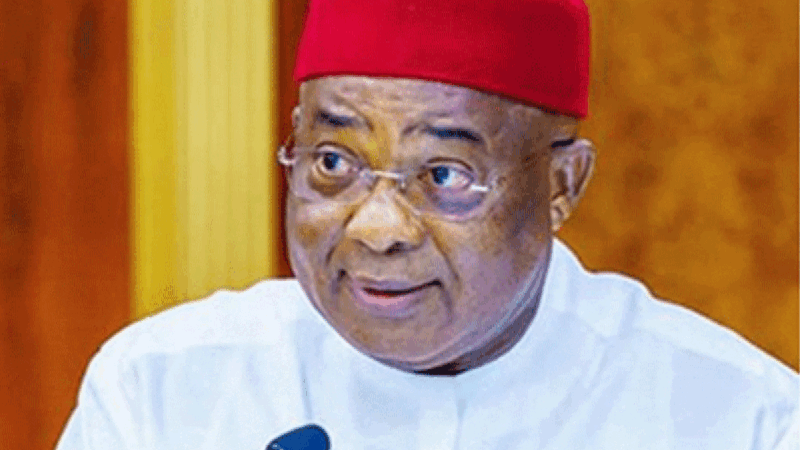CPPE Says Rising Insecurity Making It Difficult To Attract, Retain Investments

The worsening insecurity and other challenges in the country are seriously Nigeria’s capacity to attract and retain new investments, as investors evaluate their risks.
According to the CPPE, the state of insecurity has reached a frightening level deserving of a state of emergency declaration, adding that the trajectory portends serious adverse implications for economic growth prospects and investment outcomes.
Speaking in its 2022 first-quarter economic review, the Chief Executive Officer of the CPPE, Dr. Muda Yusuf, noted that the worsening security situation in the country, the escalating energy cost, exchange rate depreciation, liquidity crisis in the foreign exchange market and the spiking inflationary pressures form major headwinds undermining economic growth.
“We cannot retain, scale or attract investment in an environment that is not secure. This is true of domestic and foreign investments. The situation continues to pose a very serious challenge to lives and livelihoods. Investors’ confidence has been greatly undermined with investments across all sectors being adversely affected. When investment is in jeopardy, livelihoods are negatively impacted. Worsening insecurity is adversely impacting lives and undermining livelihoods. This is taking a huge toll on both the social and economic life of the nation”, Yusuf said.
He noted that escalating energy costs, alongside poor power supply from the national grid, have consequences for the economy as these are reflected in the high production and operating costs across all sectors, high haulage costs due to diesel prices as well as potential suspension of operations for businesses that are unable to pass the costs to the consumers.
Acknowledging the improved GDP growth in 2021, he said that while laudable growth performance is one thing, translating the growth to improved welfare, job creation, poverty reduction and economic inclusion is a completely different matter.
Going forward, he argued that policymakers should prioritise key development indicators, such as citizens’ welfare and investment productivity in the economy more than the GDP numbers.
On the need to address inflation concerns, he noted that while the technical computation of the inflation figures by the National Bureau of Statistics (NBS) is not in dispute, the reality of the impact of the intense inflationary pressures over the past one year is at variance with the official inflation data.
“For the basket of goods consumed by most households, prices have jumped by between 30-100 per cent over the past one year. The same is true of businesses. The pressure of spiking inflation on household budgets has been intense and distressing. Purchasing power has been massively eroded, real incomes have collapsed, and the poverty situation has consequently worsened.
“Businesses have been similarly impacted as they have been experiencing a slump in sales, turnover and profits margins. The impact on small businesses is even more severe because of their limited capacity to absorb economic shocks.
“The spiraling inflation dynamics deserve an urgent policy response at the highest level of government. The impact on citizen welfare is severe. The effect on SMEs is troubling. There is worsening social discontent, driven by poverty inflicted by inflation”, he noted.
According to the CPPE, the state of insecurity has reached a frightening level deserving of a state of emergency declaration, adding that the trajectory portends serious adverse implications for economic growth prospects and investment outcomes.
Speaking in its 2022 first-quarter economic review, the Chief Executive Officer of the CPPE, Dr. Muda Yusuf, noted that the worsening security situation in the country, the escalating energy cost, exchange rate depreciation, liquidity crisis in the foreign exchange market and the spiking inflationary pressures form major headwinds undermining economic growth.
“We cannot retain, scale or attract investment in an environment that is not secure. This is true of domestic and foreign investments. The situation continues to pose a very serious challenge to lives and livelihoods. Investors’ confidence has been greatly undermined with investments across all sectors being adversely affected. When investment is in jeopardy, livelihoods are negatively impacted. Worsening insecurity is adversely impacting lives and undermining livelihoods. This is taking a huge toll on both the social and economic life of the nation”, Yusuf said.
He noted that escalating energy costs, alongside poor power supply from the national grid, have consequences for the economy as these are reflected in the high production and operating costs across all sectors, high haulage costs due to diesel prices as well as potential suspension of operations for businesses that are unable to pass the costs to the consumers.
Acknowledging the improved GDP growth in 2021, he said that while laudable growth performance is one thing, translating the growth to improved welfare, job creation, poverty reduction and economic inclusion is a completely different matter.
Going forward, he argued that policymakers should prioritise key development indicators, such as citizens’ welfare and investment productivity in the economy more than the GDP numbers.
On the need to address inflation concerns, he noted that while the technical computation of the inflation figures by the National Bureau of Statistics (NBS) is not in dispute, the reality of the impact of the intense inflationary pressures over the past one year is at variance with the official inflation data.
“For the basket of goods consumed by most households, prices have jumped by between 30-100 per cent over the past one year. The same is true of businesses. The pressure of spiking inflation on household budgets has been intense and distressing. Purchasing power has been massively eroded, real incomes have collapsed, and the poverty situation has consequently worsened.
“Businesses have been similarly impacted as they have been experiencing a slump in sales, turnover and profits margins. The impact on small businesses is even more severe because of their limited capacity to absorb economic shocks.
“The spiraling inflation dynamics deserve an urgent policy response at the highest level of government. The impact on citizen welfare is severe. The effect on SMEs is troubling. There is worsening social discontent, driven by poverty inflicted by inflation”, he noted.







